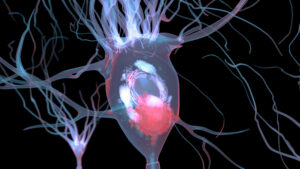Lewy body dementia studies currently recruiting participants
Accounting for 10-15 percent of dementia cases in the UK, Lewy body is the second most common form of dementia. However, the recent World Lewy Body Day brought into sharp focus the fact that very little is known about this form of dementia, highlighting the need for more research.
Lewy body dementia is caused by a buildup of clumps of protein called Lewy bodies in the brain. Symptoms include hallucinations, memory problems, difficulty sleeping, unsteadiness and falls. It is still not known why the deposits develop or how they damage the brain.
Two notable Lewy body dementia studies are currently recruiting participants through Join Dementia Research:
The MILOS study
Lewy body dementia has similar symptoms to other conditions such as Alzheimer’s disease, which means misdiagnosis is common.
The Multimodal Imaging in Lewy Body Disorders (MILOS) study is using multiple different types of brain scan, including magnetoencephalography (MEG), Magnetic Resonance Imaging (MRI) and Positron Emission Tomography (PET), to compare the brains of healthy volunteers with those with different forms of dementia.
On this study, participants with Lewy body dementia, Parkinson’s disease with memory problems, Alzheimer’s disease, mild cognitive impairment and healthy volunteers are visited at home by a researcher and asked about their memory, mood and general health.
They are then invited to Addenbrooke’s Hospital in Cambridge for an MEG and MRI scan. Some participants with dementia are also invited to take a PET scan in either Cambridge or Sheffield. Each scan takes approximately 1 hour.
By using the scans to compare electrical activity in the brains of people with Lewy body dementia to those without it, researchers hope to identify the condition easier. This could lead to more accurate diagnostic tests in the future.
The study is led by the University of Cambridge with funding from Alzheimer’s Research UK, Addenbrooke’s Charitable Trust, the Lewy Body Society and NIHR Biomedical Research Centre. People in Cambridgeshire, South Yorkshire, Nottinghamshire and surrounding areas are invited to take part until the end of 2025.
ENLIST-UK
Some people with Lewy body dementia will decline faster compared to those with Alzheimer’s disease and the cause of this decline is not well understood.
A Lewy body dementia network longitudinal study in the UK (ENLIST-UK), is looking at gathering biological and clinical markers from people with Lewy body dementia to improve diagnosis and prognosis for them.
Participants with Lewy body dementia are invited to visit a study centre to complete questionnaires on their memory, attention and concentration before undergoing blood and neurological tests.
These involve collecting blood and cerebrospinal fluid and comparing these with neuroimaging scans, to examine the structure and function of the brain. Participants with Alzheimer’s disease and Parkinson’s disease dementia are also invited to take part, so that data from the 2 conditions can be compared.
The research team hopes to gain a better understanding of how these changes to the brain function leads to progression of symptoms such as attention, concentration and memory problems, compared to other forms of dementia. This will help inform how the condition is treated and managed in the future.
The 3-year-long study, led by King’s College London, aims to recruit 177 people across the UK and is open to new participants until September 2024.
To find out if you are eligible to take part in a dementia study, sign in to your Join Dementia Research account or, if you are not already registered, sign up today.
